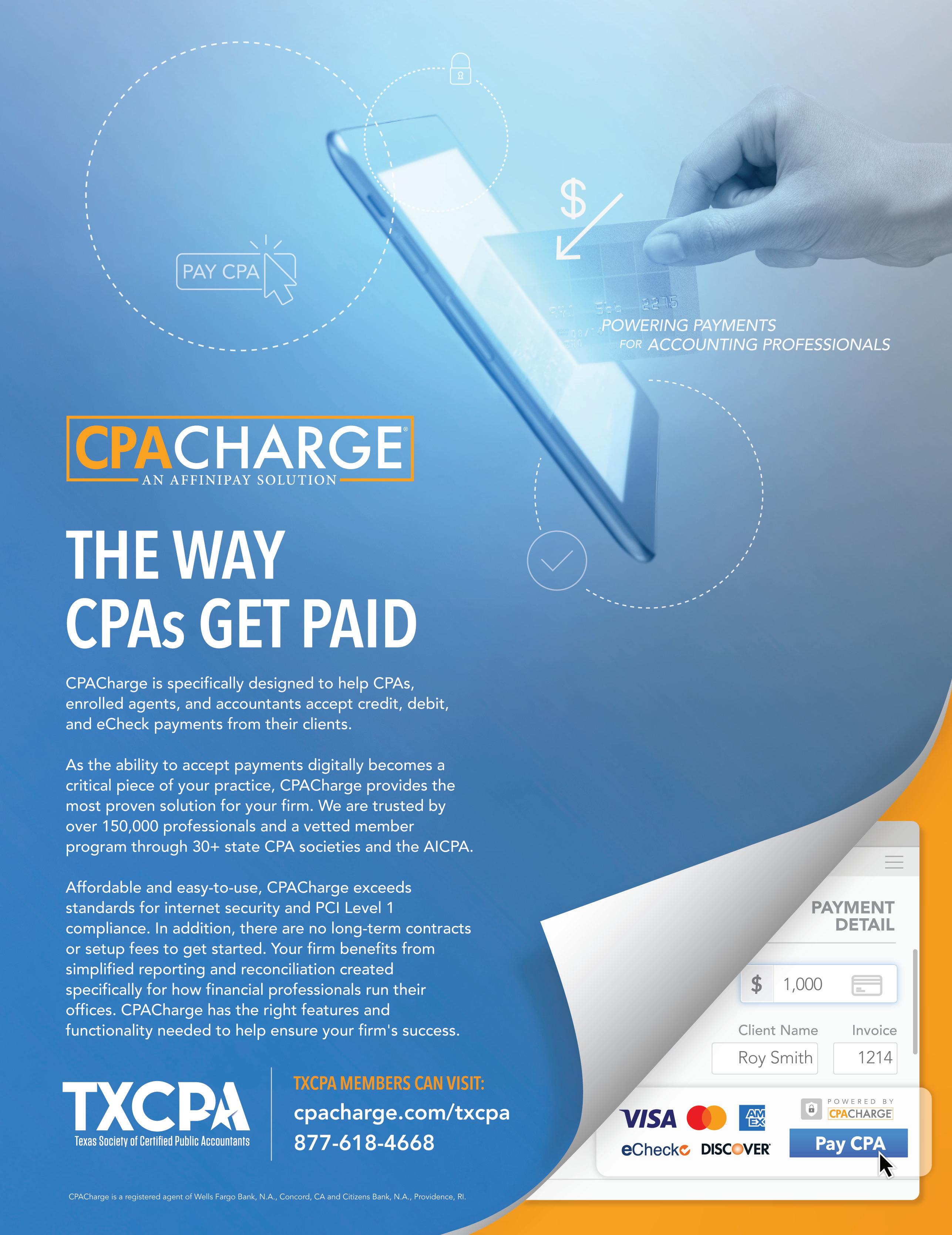
4 minute read
Accounting & Auditing
By Don Carpenter, MSAcc/CPA
The role of the whistleblower is nothing new in the world of financial reporting and the continuous effort to preserve the integrity of the financial markets. The Dodd-Frank Act (2010) created the Office of the Whistleblower in the Securities and Exchange Commission (SEC) as an avenue for knowledgeable individuals to report financial wrongdoing and protect investors.
Over its years in operation, the program has demonstrated its effectiveness in assisting the SEC in its responsibility to enforce federal security laws. Information provided by whistleblowers has led directly to the agency ordering over $1.4 billion in financial remedies, including $740 for disgorgement of gains and related interest, most of which has been returned to wronged investors.
The SEC is proposing significant amendments to the program, some of which have met with criticism from various interests while being endorsed by others, particularly business and trade groups.
One revision that has been criticized as possibly discouraging reporting focuses on how whistleblowers must report claims. If accepted, whistleblowers will be required to report to the Commission “in writing.” This change stems from the Supreme Court decision in Digital Realty Trust, Inc. v. Somers, which found that the SEC’s employment retaliation protection did not extend to whistleblowers who reported through internal company reporting systems.
The court held that a uniform definition of a “whistleblower” for all aspects of the program was necessary, including the employment retaliation protection provisions. Whistleblowers would be required to report through the SEC’s online portal or on Form TCR. Critics raise the concern that this may discourage potential whistleblowers from coming forward.
Another major area of revision concerns frivolous or false claims. A proposed rule change would allow the SEC to permanently bar an individual from seeking an award after he/she has been found to be abusing the program by submitting three or more frivolous reports.
The revision would also allow the Commission to dispense with contested decisions regarding denied awards through a summary disposition process. This new procedure is intended to streamline the resolution of contented decisions on straightforward denials.
The primary focus of the revisions concerns the monetary awards whistleblowers can receive when financial remedies are assessed for a violation. Currently, the SEC is authorized to make monetary awards to individuals who provide original information that results in financial remedies in excess of $1 million.
The proposal would make the following revisions.
Awards would be allowed for settlements reached through a deferred prosecution agreement or non-prosecution agreement entered into by the Department of Justice or a state attorney general. It would also allow for awards where a settlement agreement is reached by the SEC outside of a judicial or administrative proceeding. This is intended to prevent whistleblowers from being denied awards based on the forum for reaching settlement with the wrongdoer.
Another revision would allow the SEC to adjust upward smaller awards to the extent that the award does not exceed the 30% statutory cap. Over 60% of awards to date have been for less than $2 million.
Investor Protection Fund
Awards are made equal to 10% to 30% of the remedy and are sourced from the Investor Protection Fund established by Congress. Since the inception of the program, the SEC has awarded more than $300 million to over 50 individuals, with the largest award to a single individual totaling $50 million.
The flexibility to increase an award is intended to give the SEC the ability to adequately incentivize whistleblowers who otherwise might not deem the reward material enough to justify the inherent risk in reporting.
Likewise, the proposal would also establish a discretionary mechanism to make awards in cases that do not currently meet the $1 million threshold for covered action, are based on publicly available information or where monetary sanctions collected are de minimis. Currently, no award is allowed under these circumstances.
Of the total amount awarded to date, 40% of the aggregate has been paid in just three awardsand several individuals have received awards in excess of $20 million. With the statutory cap for an award at 30% of the financial remedy and no dollar limit as a ceiling, awards can quickly mount up.
The proposal gives the SEC discretion to reduce very large awards that are considered well in excess of an amount necessary to fairly compensate whistleblowers without providing windfalls that unfairly burden damaged parties or taxpayers. Discretion would only be applied to awards in excess of $30 million (financial remedies in excess of $100 million) and would still be subject to the minimum 10% award provided in the statute. The amendment would also provide for discretion when it is determined that the whistleblower’s report qualifies for awards under multiple programs.
Some groups are concerned that these revisions will discourage reporting by individuals within organizations who fear reprisals and may not be knowledgeable with regard to the procedures that must be observed to qualify for whistleblower protections. Others argue that changes are needed to give the SEC flexibility to encourage reporting while at the same time being accountable to taxpayers and injured parties.
If enacted, only time will tell how these changes will play out.
ABOUT THE AUTHOR:
Don Carpenter is clinical professor of accounting at Baylor University. Contact him at Don_Carpenter@ baylor.edu.











